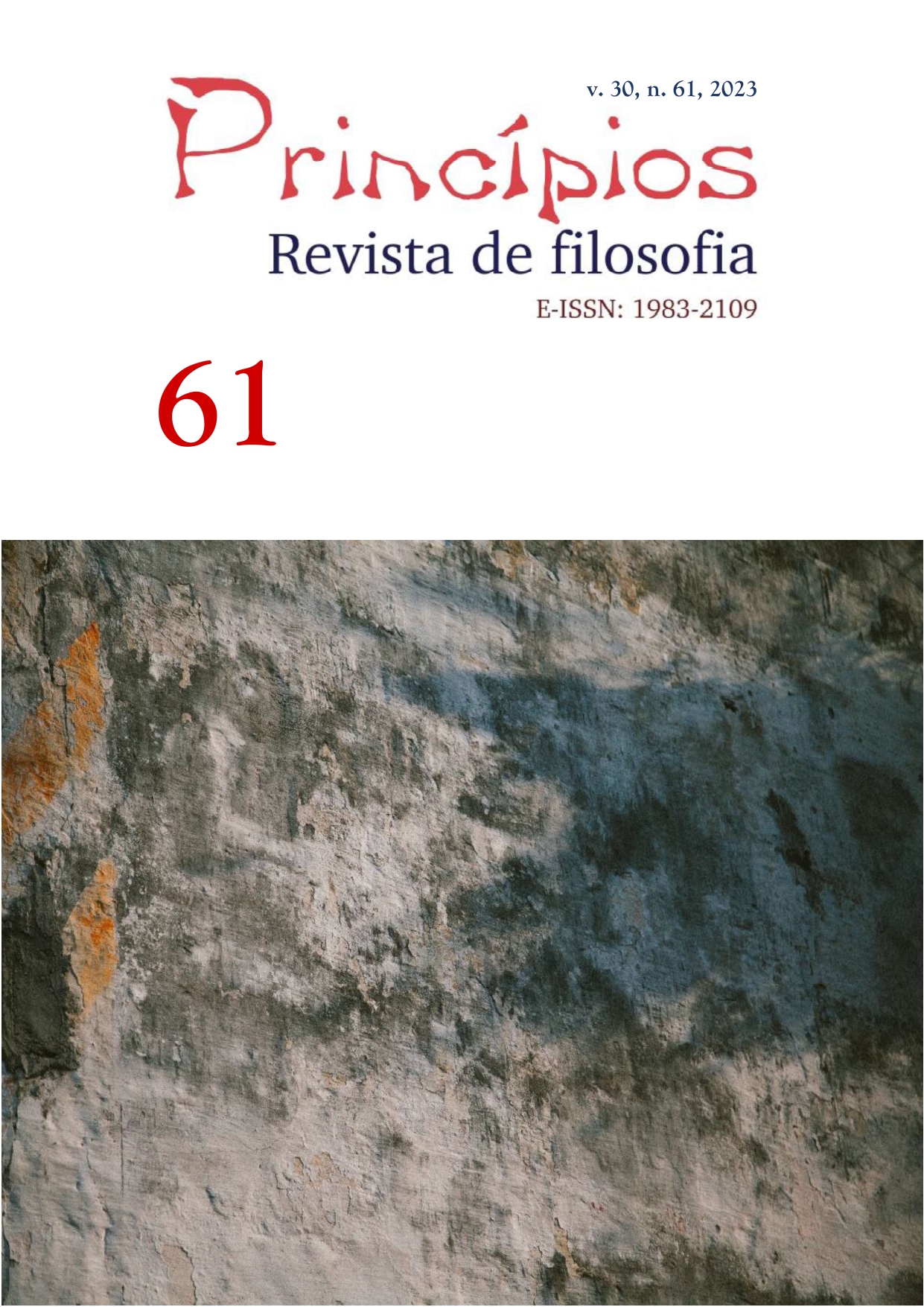O Mal da Morte e o Desafio do Tempo
DOI :
https://doi.org/10.21680/1983-2109.2023v30n61ID31669Mots-clés :
Morte, Dano, Comparativismo, Desafio do TempoRésumé
Neste artigo, pretendemos explorar a tese comparativista sobre o mal da morte e como ela lida com o chamado Desafio do Tempo. De acordo com o comparativismo, a morte pode ser um mal na medida em que a pessoa estaria melhor, caso não tivesse falecido. No entanto, se ao morrer deixamos de existir, como a morte pode ser algo ruim? Mais especificamente, em que momento a morte prejudica o sujeito? Para responder a esta questão, primeiramente explicaremos no que consiste exatamente a tese comparativista, e como ela pode argumentar sobre algum valor prudencial da morte. Em seguida, explicaremos o que é o desafio do tempo e, por fim, analisaremos as respostas fornecidas pelos comparativistas ao problema. Buscaremos assim defender que o comparativismo pode não só dizer se uma morte é ruim, mas também o quão ruim pode ser para o indivíduo e, além disso, que essa abordagem propõe soluções plausíveis ao desafio do tempo.
Téléchargements
Références
BRADLEY, Ben. When is death bad for the one who dies? Noûs, Vol. 38, No. 1. p. (1-28). 2004.
BRADLEY, Ben. Well-being and Death. Oxford: Oxford University Press. 2009.
BRADLEY, B. Well-being and Death. In: The Routledge Handbook of Philosophy of Well-Being. Edited by: Guy Fletcher. Routledge Taylor and Francis Group. p. (360-369). 2015.
BROOME, John. Weighing Lives. Oxford: Oxford University Press. 2004.
EPICURO. Carta a Meneceu. Tradução: Álvaro Lorencini e Enzo Del Carratore. São Paulo: Editora UNESP. 2002;
FEINBERG, J. Harm to others. In: Metaphysics of Death. Stanford University Press. p. (171-190). 1993.
FEIT, N. The Time of Death’s Misfortune. Noûs, Vol. 36. No. 3. p. (359-383). 2002.
FEIT, N. Comparative harm, creation and death. Utilitas Vol. 28. No. 2. p. (136-163). 2016.
FELDMAN, F. Some Puzzles About the Evil of Death. The philosophical Review, vol. 100, No. 2 (205-227). 1991.
FELDMAN, Fred. Confrontations with the Reaper. Oxford: Oxford University Press. 1992.
GREY, William. Epicurus and the Harm of Death. Australasian Journal of Philosophy. Vol. 77. No. 3. p. (358-364). 1999.
JOHANSSON, Jens. The Timing Problem. In: The Oxford Handbook of Philosophy of Death. Oxford University Press. p. (1-14) 2012.
LAMONT, J. A Solution to the Puzzle of When Death Harms its Victims. Australasian Journal of Philosophy, 76:2, (198-212). 1998.
LI, J. Commentary on Lamont’s: when death harms its victims. Australasian Journal of Philosophy, 77:3, (349-357). 1999.
LUPER-FOY, S. Mortal Harm. The Philosophical Quarterly. Vol. 57. No. 227. p. (239-251). 2007.
Luper, Steven, "Death", The Stanford Encyclopedia of Philosophy (Winter 2019 Edition), Edward N. Zalta (ed.), URL = <https://plato.stanford.edu/archives/win2019/entries/death/>.
MORTENSEN, C. Change and Inconsistency. The Stanford Encyclopedia of Philosophy (Spring 2020 Edition), Edward N. Zalta (ed.), URL = https://plato.stanford.edu/archives/spr2020/entries/change/>.
NAGEL, T. Death. Noûs. Vol. 4. No. 1. p. (73-80). 1970.
NUSSBAUM, M. The Damage of Death: Incomplete arguments and false consolations In: The Metaphysics and Ethics of Death: New Essays. Edited by James Stacey Taylor. Oxford: Oxford University Press. p. (25-43). 2013.
PITCHER, George. The Misfortunes of the Dead. American Philosophical Quarterly. Vol. 21. No. 2. p. (183-188). 1984.
PURVES, Duncan. Accounting for the harm of death. Pacific Philosophical Quarterly 97. p. (89-112). 2016.
ROSENBAUM, S. How to be dead and not care: a defense of Epicurus. American Philosophical Quarterly. Vol. 23. No. 2. p. (217-225). 1986.
RUBEN, David-Hillel. A puzzle about posthumous predication. The Philosophical Review. Vol 97. No 2. p. (211-236). 1988.
Téléchargements
Publié-e
Comment citer
Numéro
Rubrique
Licence
© André Luiz Lima Cardoso 2023

Cette œuvre est sous licence Creative Commons Attribution - Pas d'Utilisation Commerciale - Partage dans les Mêmes Conditions 4.0 International.
Autores mantêm os direitos autorais e concedem à revista o direito de primeira publicação, com o trabalho simultaneamente licenciado sob a Licença Creative Commons Attribution que permite o compartilhamento do trabalho com reconhecimento da autoria e publicação inicial nesta revista.
Termos da licença:
| Não Comercial (NC) | Os licenciados podem copiar, distribuir, exibir e executar a obra e fazer trabalhos derivados dela, desde que sejam para fins não comerciais. |
| Compartilha Igual (SA) | Os licenciados devem distribuir obras derivadas somente sob uma licença idêntica à que governa a obra original ou menos restritiva. |


 Português (Brasil)
Português (Brasil) English
English Español (España)
Español (España) Français (Canada)
Français (Canada)


